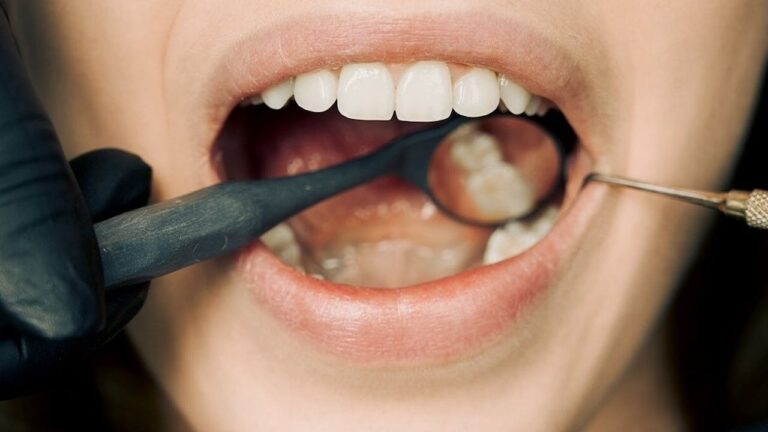In this comprehensive guide, we will delve into the nuances of a Diploma in Dental Technology, providing an insightful resource for aspiring dental technicians who are poised to make a tangible difference in the lives of those they serve.
Understanding Dental Technology
Before we dissect the academic journey, it is pivotal to grasp the essence of dental technology. Dental technicians, also known as dental technologists, operate at the intersection of health and artistry, crafting prostheses like dentures, bridges, and crowns with a blend of clinical knowledge and skilled craftsmanship. They are the unsung heroes working behind the scenes in dental labs, collaborating closely with dentists to create appliances that are as aesthetically pleasing as they are functional.
The Diploma in Dental Technology: An Overview
A Diploma in Dental Technology is a structured program that prepares students for a career in dental laboratory technology. Typically spanning two to three years, this course equips students with the fundamental knowledge and hands-on experience required to excel in this field. The curriculum is designed to cover a broad spectrum of topics, including dental materials science, oral anatomy, dental prosthetics, orthodontic appliances, and the use of cutting-edge technology in the dental lab.
Curriculum and Learning Outcomes
Students undertaking this diploma will engage in an immersive learning experience that encompasses both theoretical understanding and practical application. Core subjects typically include:
- Oral Anatomy and Physiology: Understanding the structure and function of the oral cavity is foundational in creating dental devices that fit comfortably and work effectively.
- Dental Materials Science: This entails studying the properties and manipulation of various materials used in dental restorations, such as ceramics, polymers, and metals.
- Prosthodontics: Focusing on the replacement of missing teeth, this area teaches students about fabricating dentures, crowns, and bridges.
- Orthodontics: Here, the focus shifts to correcting dental irregularities, requiring skills in constructing retainers, braces, and other corrective devices.
- Dental CAD/CAM Technology: The digital realm of dental technology is explored, introducing students to computer-aided design and manufacturing used in creating precise dental restorations.
- Clinical and Laboratory Management: This prepares students for the operational aspects of working in a dental laboratory, including equipment maintenance, quality control, and workflow management.
Through the course, students can expect to achieve the following outcomes:
- Proficiency in creating accurate dental restorations that meet both aesthetic and functional requirements.
- An ability to apply critical thinking to solve complex dental cases.
- A comprehensive understanding of dental ethics and the importance of maintaining patient confidentiality.
Practical Training
A significant portion of the diploma involves hands-on training, where students spend time in dental laboratories, working alongside experienced professionals. This practical aspect is crucial as it provides a real-world context to the theoretical knowledge acquired, fostering technical skills that are imperative to the student’s future career.
Career Prospects and Opportunities
Upon successful completion of the diploma, graduates are well-equipped to begin their careers as dental technicians. Employment opportunities abound in various settings, including:
- Commercial Dental Laboratories: The most common pathway, where technicians work in labs that service multiple dental practices.
- Private Dental Practices: Some dentists employ in-house technicians to provide a more integrated service to patients.
- Hospital Dental Services: Technicians may work in hospitals, particularly those with maxillofacial units where custom appliances are often needed.
- Higher Education and Research: Graduates may engage in teaching or participate in research projects aimed at advancing dental technology.
Moreover, with a globally aging population and an increasing emphasis on dental aesthetics, the demand for skilled dental technicians is anticipated to grow, making it a career with stable prospects.
Advancing in the Field
For those looking to further their expertise post-diploma, there are opportunities for specialization in areas such as maxillofacial technology or implantology. Additionally, with experience, some dental technicians may opt to open their own laboratories or advance to managerial positions.
The Impact of Digital Technology
It’s worth highlighting that the field of dental technology is on the cusp of transformation, thanks to digital advancements. The diploma program typically includes training in digital dentistry, which is revolutionizing the way dental devices are designed and produced. Aspiring technicians must be adept with technologies such as 3D printing and digital imaging, ensuring they remain competitive in a rapidly evolving industry.
Choosing the Right Institution
Selecting a reputable institution for your Diploma in Dental Technology is paramount. Prospective students should seek programs that are accredited and recognized by relevant dental boards or professional bodies. Additionally, one should consider the faculty’s expertise, the institution

